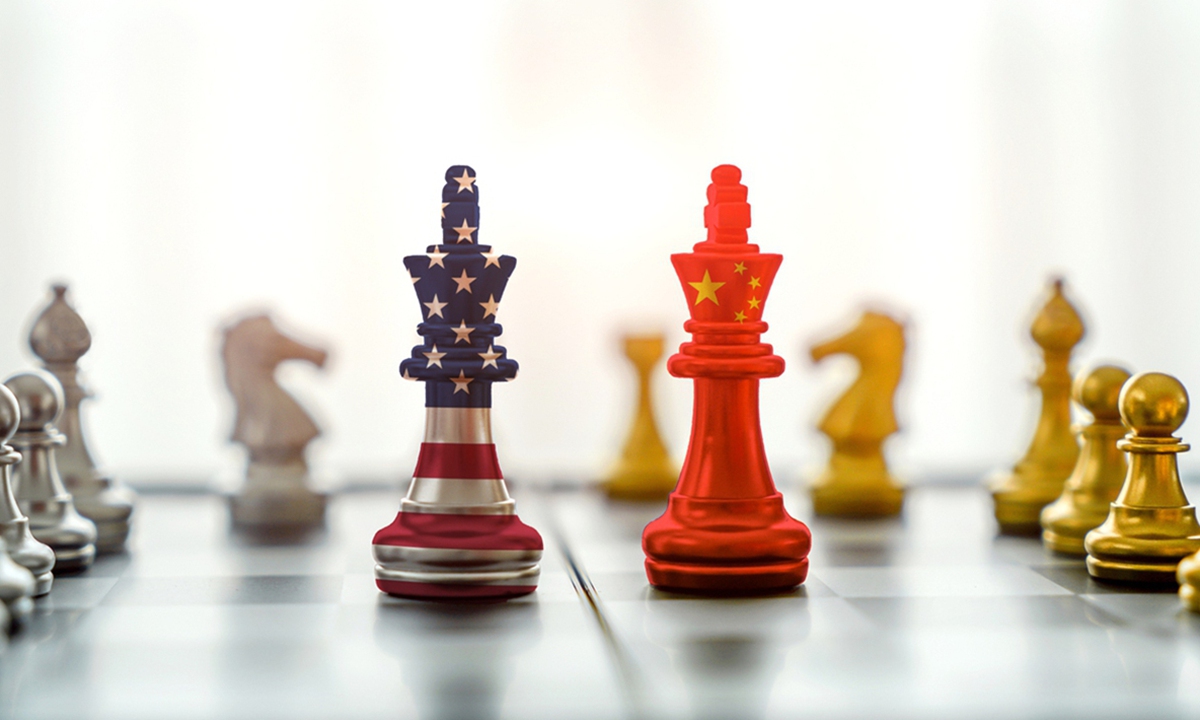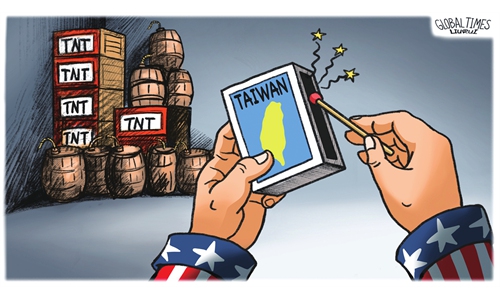
File Photo
A bipartisan delegation of US senators led by Senate Majority Leader Chuck Schumer arrived in Shanghai on Saturday, which should be seen as a new move to deepen communication between China and the US. As we all know, parliamentarians are usually the group with the most extreme anti-China stances in the US. This delegation does not include the most hawkish anti-China senators such as Marco Rubio and Tom Cotton, but Schumer himself is the proposer of the bill dubbed "China Competition 2.0." Just hours before the Schumer-led delegation arrived in Shanghai, the US Commerce Department added 42 Chinese companies to a government export control list on Friday. Moreover, October 7 marked the one-year anniversary of the US decision to upgrade its semiconductor export controls on China.
The relationship between China and the US is grim, and highly complex. China faces a strategic siege by the US and its allies, which is arguably the most salient aspect of international geopolitics at present and will be for a long time to come. This is something we must firmly face up to.
But China does not live solely in the realm of international geopolitics; it is a huge, thick presence, and its destiny and development are not encompassed by geopolitics. We have our own powerful logic for the future. China's determination first recognizes the country's domination over its own destiny in the 21st century. It attaches importance to the struggle against the US, but also to not being immersed in the game with the US and the West, so as to prevent geopolitics from shaping Chinese society's view of security, and to prevent our internal governance from being overly constrained by external factors. Chinese society as a whole needs to move into the future with a high degree of confidence.
The US-launched "chip war" against China is of course a very serious challenge, but one year after the US upgraded its semiconductor export controls against China, both Huawei and Semiconductor Manufacturing International Corporation are stronger, which clearly proves that while US suppression can cause trouble, it does not play a decisive role. The US Congress' engagement in a large number of other anti-China bills and motions is a vain, and cannot stop China's progress.
To put it more simply, China's growing nuclear power is enough to effectively suppress the strategic impulses of the most extreme anti-China factions in the US, and China's innovative capacity, built on the world's most comprehensive manufacturing sector, rapidly illustrates the ludicrousness of Washington's ambition to stifle China's development. The pattern of the US-China game is revealing the trend of the US inability to achieve the goal of "victory without war" as in the last Cold War, and the containment tactics that worked well in the past are becoming very limited in their effectiveness against China.
China deserves to be more confident and sober after experiencing several waves of blows from the US-China trade and tech wars. Containment and counter-containment are only one facet of China's current challenge, and by no means its entire or overarching task. China's real challenge is how to further unleash the huge potential and vitality of the whole of society, and use this ensuing "super-unleashing" to naturally surpass or even annihilate the US strategic containment.
It must be pointed out that the most crucial elements for achieving this unleashing are within China itself, or in other words, in our own hands, rather than under the control of the US and the West. For China, the most important thing to prevent is the continuous tightening of internal control due to increased external threats, which would lead to an excessive fermentation of security concerns. On the side of the US and the West, we clearly see the irrational spread of vigilance toward China. It can be said that the escalation of conflicts leading to an increase in vigilance on both sides is universal. However, China should break through this universality and make the vigilance surrounding national security align with openness and pragmatism, in order to maintain sufficient space for creativity internally in the long term. In that case, we will have sufficient guarantees for victory in the end.
Currently, the whole country attaches great importance to the economy, and economic indicators have become the most reliable barometer of confidence in our society. Overcoming the economic inertia caused by the epidemic and promoting the necessary relaxation of social governance, allowing more freedom at the grassroots level, is fundamental. We need to calmly and objectively assess the risks in terms of security and take bold steps that are essential for a prosperous market economy. The public's abundant creativity requires a more relaxed environment and sufficient expectations for grassroots relaxation and freedom in future social governance. We must not let people believe that the struggle between China and the US will dominate all aspects of our social life and that control will continue to strengthen in various fields. Some people are now worried that the Chinese economy will enter a prolonged cycle of "stagnation." We must not let such concerns spread, and eliminating them does not depend on how well we "engage in propaganda," but on using one fact after another to reverse the pessimistic mindset of those individuals.
To be honest, the US has developed too smoothly in the past and is likely to face real challenges. China is a rising power, while the US is struggling to maintain its position, and this overall situation cannot be changed. Chinese people have a strong belief in making breakthroughs by "doing their own things well," while the US hopes to achieve perpetual hegemony by "bringing down the opponent." This is a competition between relying on oneself to do well and hoping for one's opponent to collapse. Isn't it obvious who has the stronger strategic initiative?
The author is a Chinese media professional. opinion@globaltimes.com.cn


